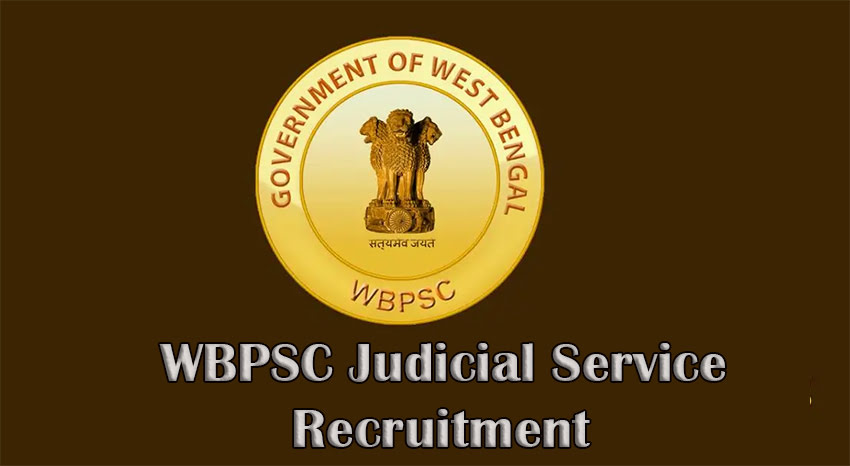If you’ve ever dreamed of becoming a judge in West Bengal, here’s your chance to make it happen. The WBPSC has announced the Judicial Service Exam 2025, opening up 54 vacancies for Civil Judge (Junior Division) posts. It’s a competitive, multi-stage exam, but for law grads with grit (and a decent grasp of Bengali), this could be the career move you’ve been waiting for. Let’s break down what you need to know before diving in.
WBPSC Judicial Service Recruitment 2025
Okay, let’s be real—if you’ve ever daydreamed about being a judge, now might be your shot. The West Bengal Public Service Commission (WBPSC) has just opened up applications for the Judicial Service Exam 2025, and yep, it’s as intense as it sounds. There are 54 vacancies for the post of Civil Judge (Junior Division), and if you’re a law grad with some courtroom hustle, this could be your golden ticket.
Overviews of WBPSC Judicial Service Recruitment
What Does a Civil Judge (Junior Division) Actually Do?
Ever watched a courtroom drama and thought, “I could totally do that”? Well, this is kind of your audition. As a Civil Judge (Junior Division), you’ll deal with all things civil—property disputes, contract disagreements, family law tangles. You’ll be the one who listens, questions, analyzes, and finally makes the call.
Here’s what’s on your judicial to-do list:
- Hear both sides (a.k.a. be the voice of reason when chaos walks into your courtroom)
- Dig through evidence and connect the dots
- Apply laws (yes, the *updated* ones)
- Deliver judgments that are fair and grounded in law
- Wrap up cases before they drag on for years
It’s not just about being smart. It’s about being just—and fast on your legal feet.
Also Check:- IB Driver Recruitment
Who’s Eligible to Apply?
Alright, before you get too emotionally attached to the idea, check if you’re actually eligible (because the heartbreak of disqualification is real):
- Law Degree: LLB from a recognized university. Duh.
- Enrolled Advocate: Must be registered with any Bar Council in India.
- Age: 23–35 years (You can apply if you were born between 1990 and 2002-ish. I’ll let you do the exact math.)
- Language Requirement: Fluent in Bengali. Reading, writing, and speaking. If your first language is Nepali, you’re exempt.
Selection Process
Welcome to the three-ring circus—Prelims, Mains, and the Interview. Only the legally brave survive.
Phase 1: Preliminary Examination (a.k.a. The Screening Round)
This is your warm-up round. It’s objective-type, multiple choice—great if you’re fast with facts, not so great if you second-guess yourself a lot (and there’s negative marking, so be careful).
The goal here is to get to the Mains. Your marks don’t count for the final result, but if you mess this up, it’s game over before it even begins.
Phase 2: Mains Examination (a.k.a. The Real Test)
This is where things get intense. It’s descriptive. No ticking boxes—just pages of legal writing, argument-making, and code-citing. And if you’re not up to speed with the new criminal law codes, you’ll be in trouble. More on that in a second.
The subjects include Civil Law, Criminal Law, Constitutional Law, and a few others that’ll test whether you actually paid attention during your law degree (or just winged it). Your performance here basically decides your rank.
Also Check:- DEO Dhenkanal Recruitment
Phase 3: Personality Test (Interview—but Make It Stressful)
The final stage. You’re almost there. Now the panel wants to see if you’re cut out for the role—not just on paper, but in real life. Can you think fast? Stay calm? Speak Bengali fluently? Can you not look like you’re about to pass out?
They’ll grill you on your legal understanding, ethics, and maybe even your opinion on current legal reforms. Basically, you’ll be judged—before you can judge others.
Syllabus
Here’s the plot twist. Criminal law has had a makeover. If you’ve been studying IPC and CrPC, pause. Take a breath. Then redirect your energy to the new trio:
- Bharatiya Nyaya Sanhita (BNS) – Goodbye IPC.
- Bharatiya Nagarik Suraksha Sanhita (BNSS) – CrPC’s cooler, updated cousin.
- Bharatiya Sakshya Adhiniyam (BSA) – Taking over from the Indian Evidence Act.
It’s kind of like studying for finals only to find out the textbook changed. But hey, you signed up for the law life. You adapt. You overcome.
How to Apply for WBPSC Judicial Service Recruitment?
The application process goes live on October 10, 2025. You’ve got until November 9, 2025 to get it done. Don’t be the person scrambling at 11:59 p.m. on the last day.
- Visit the official WBPSC website
- Find the WBJS 2025 notification
- Fill in your details carefully—like triple-check-it kind of careful
- Upload photo, signature, and whatever else they ask for
- Pay the fee (unless you’re exempt)
- Submit. Pray. Start revising immediately.
Application Fee
- General/OBC: ₹210
- SC/ST/PwD (West Bengal): No fee. Zero. Nada.
- Mode: Online. Please don’t try mailing a cheque.
Also Check:- NHM Khordha Recruitment 2025
Salary & Perks
This part isn’t why you do it—but it helps. The starting salary for a Civil Judge (Junior Division) is around ₹27,700 per month. Add to that allowances like HRA and medical benefits, and it becomes a fairly stable gig. Plus, there’s the respect, job security, and the occasional “Your Honour.”
Age Limit
- Minimum: 23 years
- Maximum: 35 years
- Relaxation: Yes, for SC/ST/OBC/PwD candidates as per WB norms. Check the fine print if you fall into one of these categories.

